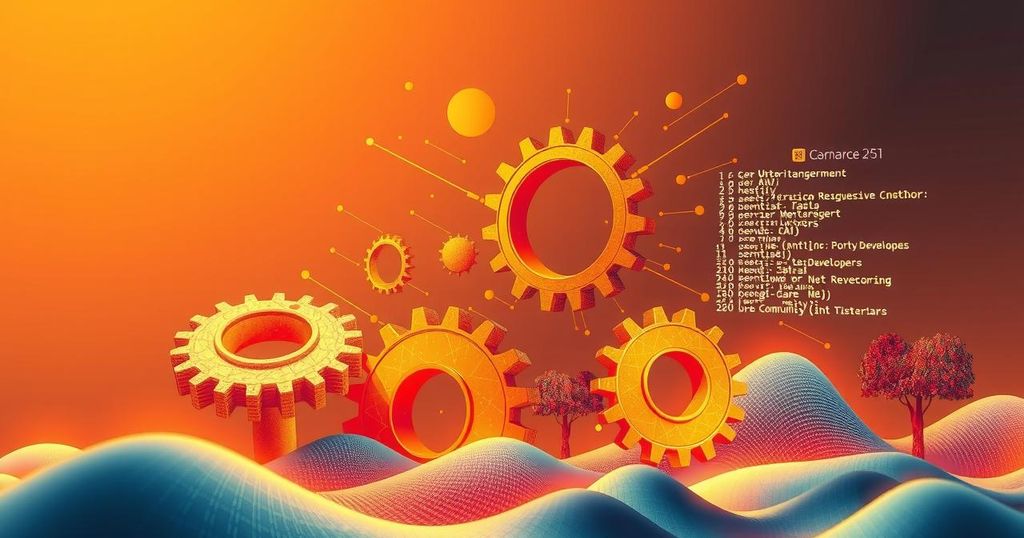The Decline of Stack Overflow: A Cautionary Tale of Community and AI
Stack Overflow struggles with decline as AI tools like ChatGPT rise. While community spirit once thrived with its reputation system, self-governance led to stifling moderation and fading human interaction. The lesson? Genuine community is crucial to survive in an AI-centric world.
It’s tempting to point fingers at artificial intelligence for the demise of Stack Overflow, but that would be oversimplifying things. The reality is more complex; it’s a cautionary tale of community-driven creativity that went awry. Once upon a time, Stack Overflow was where developers flocked to solve their most perplexing coding conundrums. It was this nexus of knowledge, breathing life into the spirit of open source programming.
Part of a broader movement of programming forums emerging in the early 2000s, Stack Overflow stood out as a beacon for developers. Yet, as large language models (LLMs) loom over the digital landscape, many are left wondering: Are such forums still relevant? Before diving headlong into the implications of AI’s rise, let’s consider what made Stack Overflow tick, where it faltered, and the pivotal role AI plays in this narrative.
A closer look at the stats paints a troubling picture of dwindling usage. As shown in decline charts dating back to its inception in 2008, Stack Overflow peaked at 200,000 questions a month, but since 2014, it’s been a slow slide downhill. Sure, 2020 saw a tiny bump thanks to the pandemic, but after that? Ouch. By early 2023, after ChatGPT broke onto the scene, the numbers plummeted. This shocking decline neatly coincides with the surge of generative AI.
But let’s not lay all the blame at AI’s doorstep. Stack Overflow’s downfall began long before that. The magic that propelled the site into the spotlight was its vibrant human interactions and community culture. Unfortunately, as self-moderation became the norm, the heart of the platform started to fade away. By the time LLMs rolled around, Stack Overflow was left with a barebones Q&A setup, starved of the richness that human connection once provided.
What really set Stack Overflow apart was its innovative reputation system, often regarded as a game-changer. This element attracted a stream of developer sites, effectively stifling competition. Users gained reputation points and badges not just for participation, but for meaningful contributions. Initially, it was a marvelous system driven by camaraderie and mutual support, but over time, it morphed.
As Stack Overflow leaned into self-governance, that initial vibrancy decayed. Moderators began to wield their power based on arbitrary standards of “quality,” shaping a sort of digital elitism. Instead of fostering a welcoming environment for learning and inquiry, the platform evolved into a battleground of constant scrutiny. Developers suddenly felt pressured, as if they were on an endless audition.
Egged on by gamification, what was once a culture of voluntary help turned into a peculiar stage where developers had to continually prove themselves. It’s akin to seeing someone stranded on the side of the road — you stop to help, not for a reward, but to connect and share understanding. That joy vanished as the reputation game tightened its grip on interactions, and now the car is idling with no friendly mechanic in sight.
Now, in this era dominated by LLMs, are humans even needed for coding support? Can everything just be boiled down to cold data? Perhaps, we might evolve roles as guardians of synthetic data. Nevertheless, Stack Overflow once cradled a community spirit that dared to embrace questions from all skill levels, a culture that encouraged novice developers to ask “dumb” questions. That’s vital for growth and nurturing future talent.
Developers still crave a community, even amid AI chaos. Look at platforms like dev.to and GitHub, which pulse with a sense of shared purpose and collaboration. GitHub, often regarded as the epicenter of coding, continues to thrive, proving that the need for human connection in software development isn’t going away anytime soon. Despite the rise of AI, the passion for coding remains alive — just like musicians will always produce their art, programmers will keep coding.
The act of creating code is inherently joyful, challenging, and deeply rewarding. AI can complement that, but if it starts overwhelming it, coding may resemble a forgotten craft, much like handmade furniture in a world of mass production. So where does Stack Overflow fit in this brave new world? Matt Asay suggested tying reputation to contributions, but let’s be real — Stack Overflow must wholeheartedly embark on preserving the human spirit of programming.
The saga of Stack Overflow serves as a poignant lesson. It wasn’t AI that caused the collapse; it merely shone a light on an inherent loss of community. Platforms built on genuine human connection aren’t just repositories of knowledge; they thrive on the enthusiasm of their users. As technology evolves, remember: the heartbeat of any community lies in the humans. Dismiss that at your own risk.
In summary, Stack Overflow’s decline underscores the importance of human connections in nurturing tech communities. While AI makes strides and reshapes our world, it hasn’t replaced the fundamental need for interaction and shared support. Stack Overflow once thrived on this very essence but stumbled into a cycle of competition and arbitrary governance. As we move forward, keeping that human element alive will be crucial for any platform aiming not to just exist but to flourish.
Original Source: www.infoworld.com




